79 - Driving Over Dreams of Lemons
Thursday, October 31, 2013
First thing I did wrong was that I asked for un cafe nube doble en vaso. My usual milky coffee. Nope - I was in Orgiva in Granada province, now, so must remember to ask for una leche manchada doble en vaso. La dueña was ancient, and widowed (guessing by the black widows' weeds) and corrected me politely.
As I took my coffee outside to the patio she jerked her head towards the pile of second-hand books on a rickety table. A good selection of UK crime writers, a dog-eared copy of Chris Stewart's "Driving Over Lemons" and half a dozen pristine Jeffrey Archers. "Do you want any?" she asked. "You can buy, or exchange." "Are there are lot of British around here then?" I asked her. "Si muchos. Desde hace ese libro, el sobre limones." "Yes lots. Since that book, the one about the lemons."
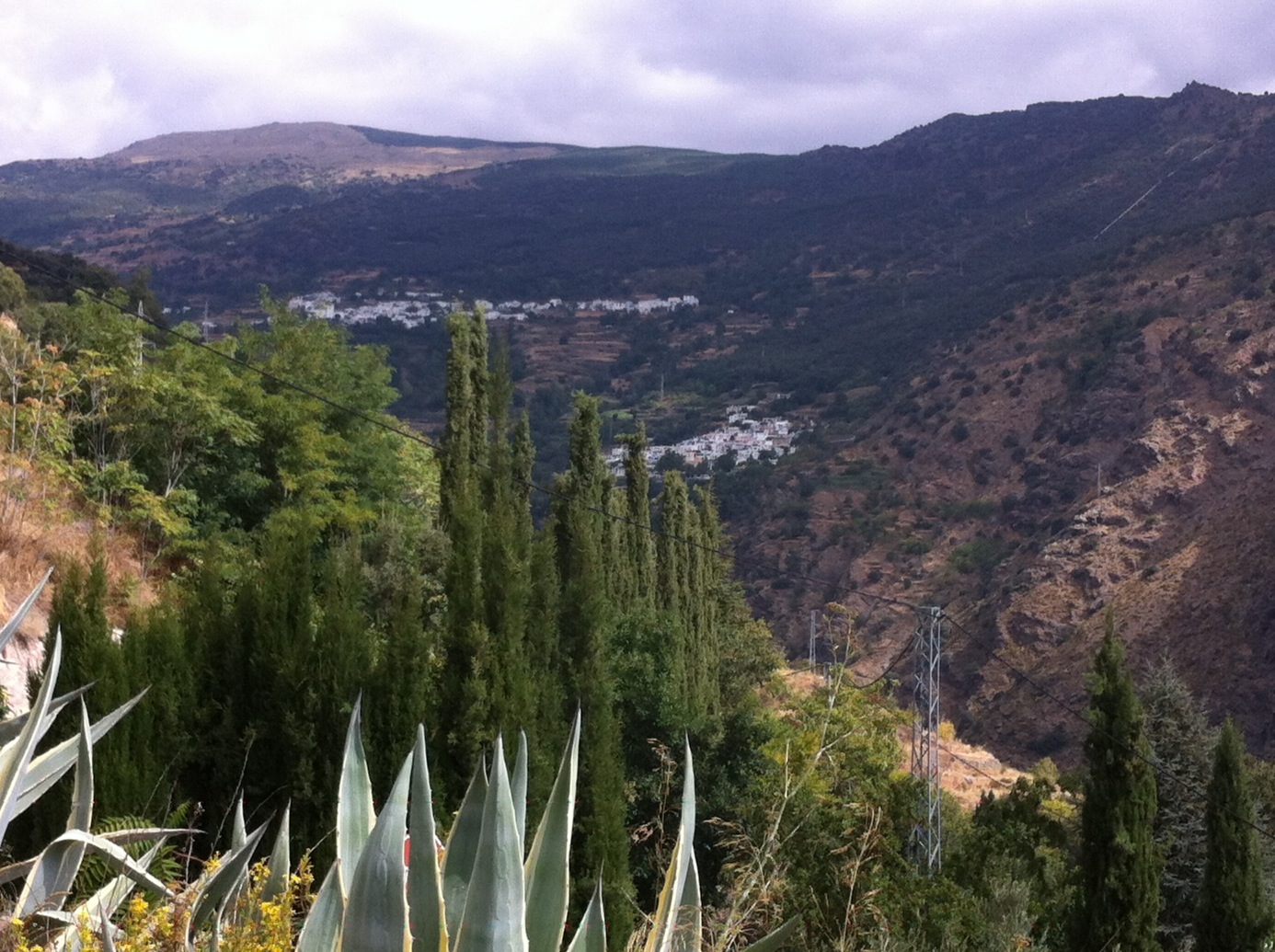 I asked her if that was good, tourists spending money in the area, following the now well-worn trail along the valley where Chris Stewart renovated his finca? She shrugged, non-committal. I asked her if that was good, tourists spending money in the area, following the now well-worn trail along the valley where Chris Stewart renovated his finca? She shrugged, non-committal.
Of course the Alpujarras have always been popular with walkers, and remote ventas offered rooms in the 1950s and 60s to the more adventurous tourists. Post-Franco, tourism boomed and not everyone flocked to the costas. A few scattered attractive hotels opened inland for discerning travellers. In France, "A Year In Provence" changed the face of that region forever in 1989. It was another ten years before the drummer who left Genesis just before they hit the big time, made a splash in a remote mountain valley in southern Spain in 1999.
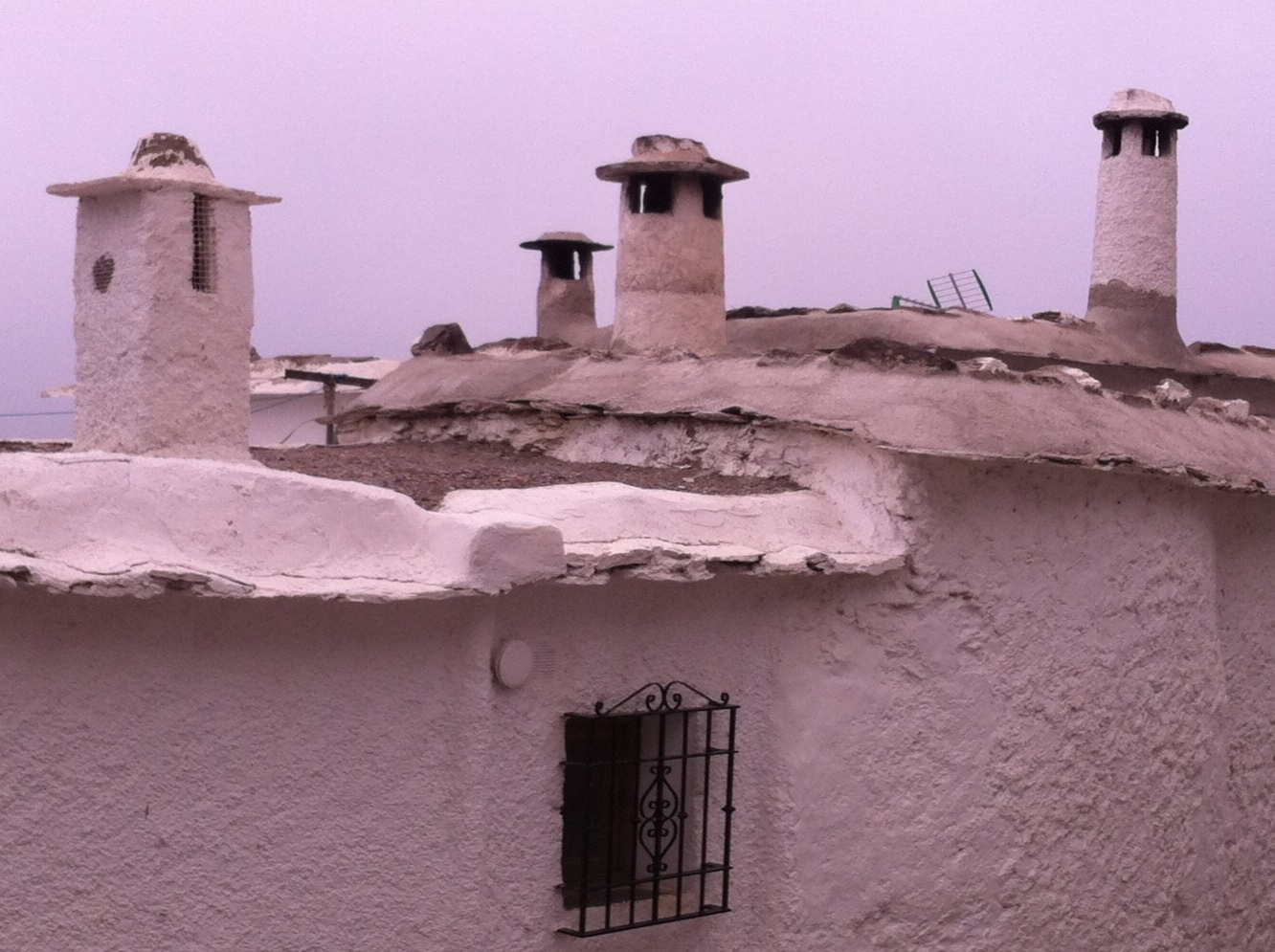 The walkers would have continued to come anyway. But what the Poqueira and Trevelez valleys weren't prepared for was the flood of buyers, all wanting to replicate the charmingly-incompetent renovation process and to experience the harsh rusticity of the "real Spain". Some locals made a killing, selling run-down old goat-shelters to unsuspecting buyers for astronomical amounts. Land without licence to build was snapped up across the hillsides as people believed (or were told) that permission was unnecessary. Swimming pools were installed next to shepherds' huts. Locals re-branded themselves as "fixers" and "project managers" to deal with the building projects for absent overseas clients. The walkers would have continued to come anyway. But what the Poqueira and Trevelez valleys weren't prepared for was the flood of buyers, all wanting to replicate the charmingly-incompetent renovation process and to experience the harsh rusticity of the "real Spain". Some locals made a killing, selling run-down old goat-shelters to unsuspecting buyers for astronomical amounts. Land without licence to build was snapped up across the hillsides as people believed (or were told) that permission was unnecessary. Swimming pools were installed next to shepherds' huts. Locals re-branded themselves as "fixers" and "project managers" to deal with the building projects for absent overseas clients.
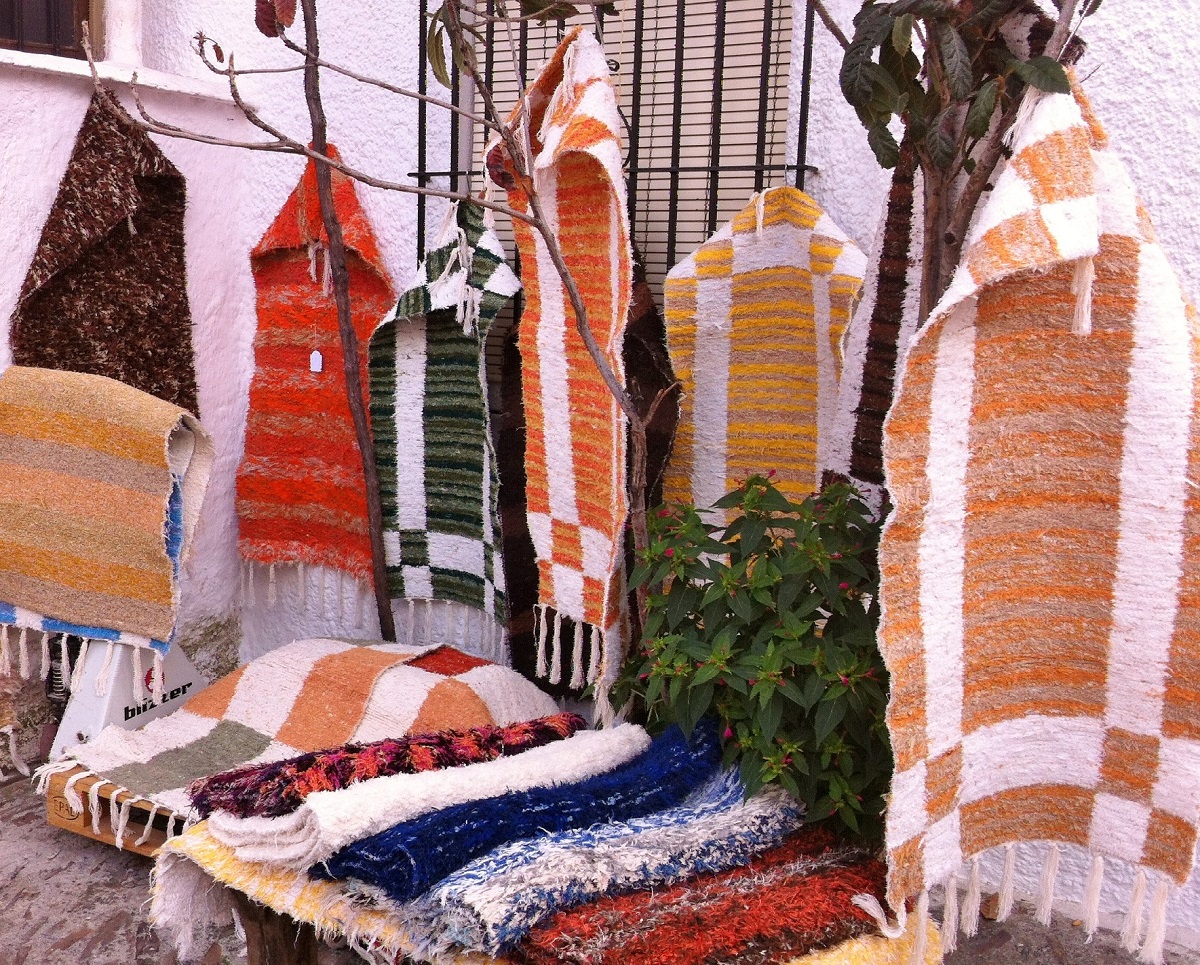 And so in the busy squares of the now-famous villages, Orgiva, Trevelez, Pitres, Portugos, Pampiliera, Bubión and Capiliera, the tourists throng, the menus are in English, and the price of a Menu del Día at lunchtime can be as much as €18.50. A block away, however, are cosy back-street bars bustling with Spanish families, where €8 still gets a generous three courses with freshly-baked bread and an interesting conversation about how every extranjero moving into the area wants that same experience of being "the first" incomer. Alfonso laughed as he told me of the new arrivals who actually don't want there to be electricity or running water - they seem to believe that living without basic infrastructure is somehow "more authentic". And so in the busy squares of the now-famous villages, Orgiva, Trevelez, Pitres, Portugos, Pampiliera, Bubión and Capiliera, the tourists throng, the menus are in English, and the price of a Menu del Día at lunchtime can be as much as €18.50. A block away, however, are cosy back-street bars bustling with Spanish families, where €8 still gets a generous three courses with freshly-baked bread and an interesting conversation about how every extranjero moving into the area wants that same experience of being "the first" incomer. Alfonso laughed as he told me of the new arrivals who actually don't want there to be electricity or running water - they seem to believe that living without basic infrastructure is somehow "more authentic".
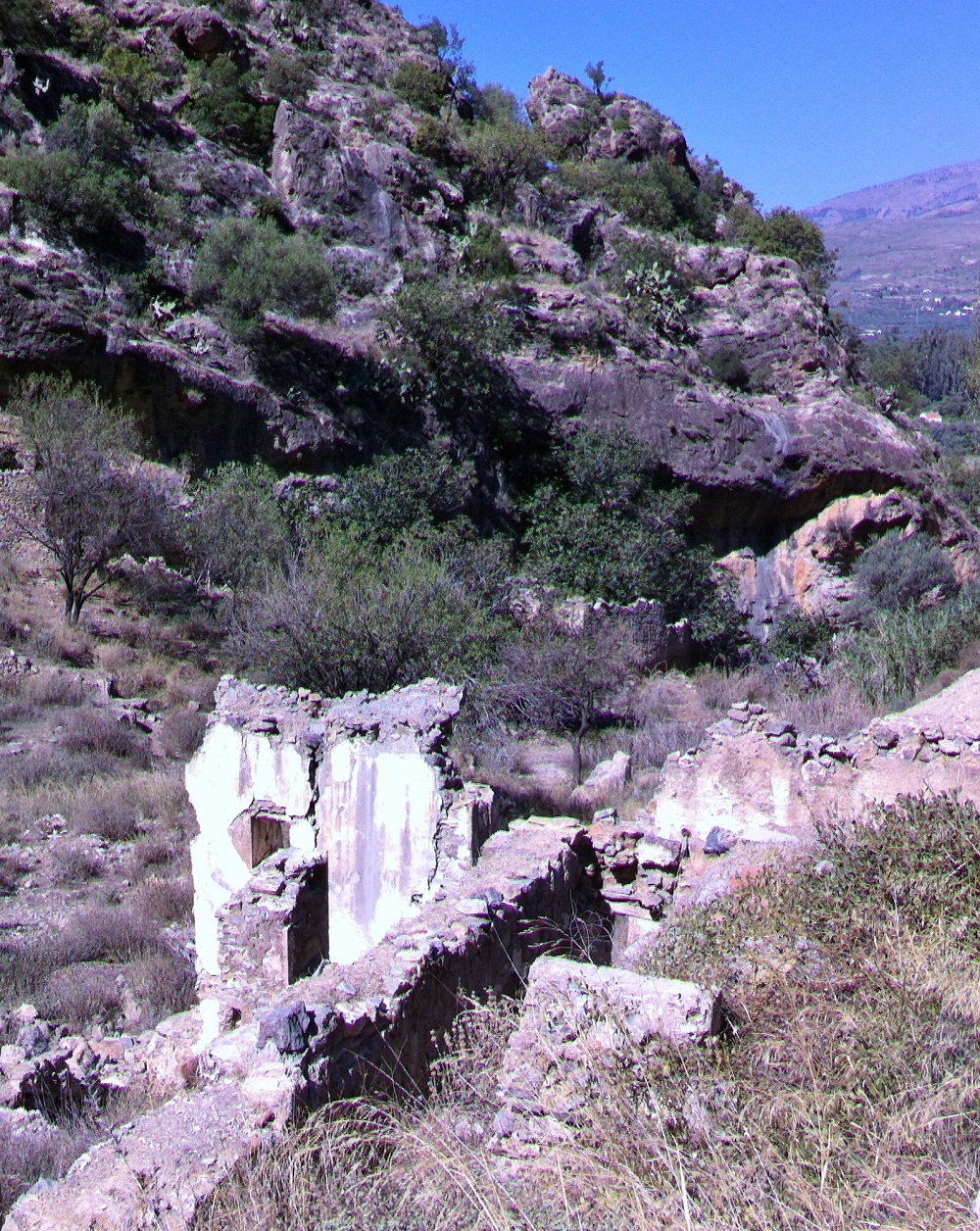 Up in the clouds as I walked on high mountain tracks, the busy villages and tourist shops felt a million miles away. I must have passed a couple of dozen run-down dwellings, either half-built, or half-collapsed. Had they been someone's abandoned hopes of a new life in the valley where everyone dreams of driving over lemons? Up in the clouds as I walked on high mountain tracks, the busy villages and tourist shops felt a million miles away. I must have passed a couple of dozen run-down dwellings, either half-built, or half-collapsed. Had they been someone's abandoned hopes of a new life in the valley where everyone dreams of driving over lemons?
After a couple of days in the mountains I descended back down through the valley. On the edge of Orgiva I went for a farewell coffee with la dueña. She grinned her toothless grin when I remembered to order una leche manchada. "Te vas a Málaga ahora?" "Are you going back to Málaga?" she asked me. "Then you can call it a cafe nube again" and she doubled up with laughter.
On the book table the whole heap of Jeffrey Archer books had gone. Perhaps inspiring a new generation of writers or politicians? The tattered copy of "Driving Over Lemons" was still there. Presumably everyone round here already has it.
© Tamara Essex 2013
THIS WEEK'S LANGUAGE POINT
Just as in English, the verb "to make" can also be used when something MAKES you feel a certain way, or MAKES something happen. For example "Me hace contenta" - it makes me happy. "Le hizo rico" - it made him rich. In this construction we usually use the third person singular as it is something external or abstract that is making me, her, or us feel a certain way. "Nos hace sentir triste" - it makes us feel sad.
 0
Like
Published at 12:39 PM Comments (10)
0
Like
Published at 12:39 PM Comments (10)
78 - Sex and Rolexes on the Beach
Thursday, October 24, 2013
He's one of the tallest men I've ever seen. And he definitely has the biggest smile. I guess you have to develop an easy charm and a friendly manner if you're trying to sell complete rubbish to beach-goers in order to scrape a living.
Gabriel is there most days. Sometimes he has hats, occasionally sunglasses, but his speciality is high-class watches. Rolexes. At a real bargain price of just €50. Who can resist?
He says that enough people do buy from him. He gets by. Just enough to pay a little rent for a bed in a room he shares with his cousin, in a house with four other guys in a part of town where the houses are over-crowded and sometimes shift-workers use the beds on rotation . His cousin Ibrahim came to Spain first, during the Civil War in Sierra Leone. Gabriel stayed to look after his little sister but after the war, when employment in Freetown was at an all-time low, he followed his cousin here in search of work, and in the absence of a proper job became a mantero (named after the blankets on which they display their wares).
 He doesn't like the winter in Spain - he needs more income to pay for some basic heating, but earns less because there's nobody on the beach. Sometimes his cousin gets some building work. They both do a few hours a week for a big vegetable co-operative but the company favours other workers who will turn up all year round. In the summer Gabriel would rather work the beach - he likes to chat to the women there. He doesn't like the winter in Spain - he needs more income to pay for some basic heating, but earns less because there's nobody on the beach. Sometimes his cousin gets some building work. They both do a few hours a week for a big vegetable co-operative but the company favours other workers who will turn up all year round. In the summer Gabriel would rather work the beach - he likes to chat to the women there.
Gabriel is one of life's optimists. "Yes I think people will need watches today, it'll be a good day" he says. "Yes I think this week we can pay the rent, it'll be a good week" he grins. "And look - the sun is shining and the ladies are on the beach". His smile lights up his face.
 He speaks Spanish clearly and I enjoy it whenever he stops for a chat. One day I can't help myself - I do the unthinkable. I suggest to him that perhaps the watches he is selling might not be genuine Rolexes. He looks shocked. "Yes yes, very good watches, best Rolexes in the world." He straps a fluorescent green plastic Rolex around my wrist, next to the watch I am already wearing. He admires the lime-green beauty of it and invites me to do the same. "Fifty euros - bargain price" he says. "But for you, beautiful lady, I will lose money but you can have it for forty." He speaks Spanish clearly and I enjoy it whenever he stops for a chat. One day I can't help myself - I do the unthinkable. I suggest to him that perhaps the watches he is selling might not be genuine Rolexes. He looks shocked. "Yes yes, very good watches, best Rolexes in the world." He straps a fluorescent green plastic Rolex around my wrist, next to the watch I am already wearing. He admires the lime-green beauty of it and invites me to do the same. "Fifty euros - bargain price" he says. "But for you, beautiful lady, I will lose money but you can have it for forty."
He is charming but he needs to be talking to people more likely to make a contribution towards his rent money this week. "Gabriel, I already have a watch, I don't need another one. Look, there's a group of girls arriving - you will have more luck with them."
"You are lovely lady" says Gabriel. "Final offer - you pay me €30 and you can have Rolex watch AND I give you the beautiful sex too."
I ask him how often that particular line is successful. A soft, wistful smile plays about his lips and the far-away expression speaks volumes as he recollects the last time he smoothed the sand in a private corner of the dunes for “the beautiful sex”. His focus returns and his grin widens. "Sometimes I can't pay the rent" he says "but instead I think about the beautiful ladies I have talked to and taken into the dunes." He laughs. Rich or poor, he makes the best of things. He says his life is hard but it is good, and he doesn't want to live anywhere else. He and I, both immigrants but under hugely different circumstances, share a deep love for our adopted country.
 I take off the lime-green plastic Rolex and hand it back. I have no doubt that the price would have gone lower and the "added bonuses" would have increased. I tell him as I have before, that if he were to sell sarongs I might buy a couple. But if he is going to meet his daily income target or disappear into the dunes with female company, he is going to have to get back to work. I take off the lime-green plastic Rolex and hand it back. I have no doubt that the price would have gone lower and the "added bonuses" would have increased. I tell him as I have before, that if he were to sell sarongs I might buy a couple. But if he is going to meet his daily income target or disappear into the dunes with female company, he is going to have to get back to work.
He wishes me a good day and turns away. A spring in his step, he makes a beeline for the group of girls unpacking their beach-towels. He got nothing from me. I, on the other hand, have expanded my Spanish vocabulary in an unexpected direction.
© Tamara Essex 2013
THIS WEEK’S LANGUAGE POINT:
Back in post number 69 “The Many Faces of Feria”, the language point was about the difficulty of translating book titles, especially those with double-meanings. http://tamaraessexspanishblog.wordpress.com/2013/08/22/69-the-many-faces-of-feria/
One which my profe hadn’t realised HAD a double-meaning was “The Importance of Being Earnest”. The official Spanish translation gives up entirely on attempting to include the aspects of seriousness, of “earnestness” and simply goes for “La Importancia de Llamarse Ernesto”, or “The Importance of Being Called Ernest”. Shame, but there was nothing they could do!
I think my favourite translation was “Gone With the Wind”, which frankly is made even more evocative in “Lo Que el Viento Se Llevó”, or “That Which the Wind has Carried Away” – love it!
T H White’s tale of King Arthur has the wonderful title “The Once and Future King”, which I had translated in a rather pedestrian manner as “El Rey Pasado y Futuro”. Much more poetic is the correct translation “El Rey que Fue y Será” – “The King who Was and Who Will Be”.
Any other good titles? Does anyone fancy having a stab at translating Milan Kundera’s “The Unbearable Lightness of Being”?
 0
Like
Published at 6:31 PM Comments (3)
0
Like
Published at 6:31 PM Comments (3)
77 - Armed and Extremely Prepared
Thursday, October 17, 2013
I'm a pacifist. So going armed does not come naturally. But for this encounter I needed everything in the armoury. I needed to be fully tooled-up. The secret weapon, the ultimate defence, was primed and was nestling reassuringly in the deep pocket of my trousers.
I remembered the rule of the 6 Ps - Perfect Preparation Prevents Piss-Poor Performance. I was prepared. In order to sign the Registro de Ciudadanos de La Unión de Europa (the new version of what used to be called "residencia"), I was armed with all the paperwork that could possibly be asked for:
- NIE (my official "foreigner's number")
- Plus a copy
- Padrón (registration at my local town hall)
- Plus a copy
- Padrón Historico (showing when I first registered)
- Plus a copy
- My form S1 from the UK Department of Work and Pensions to say they will cover my healthcare until January 2015
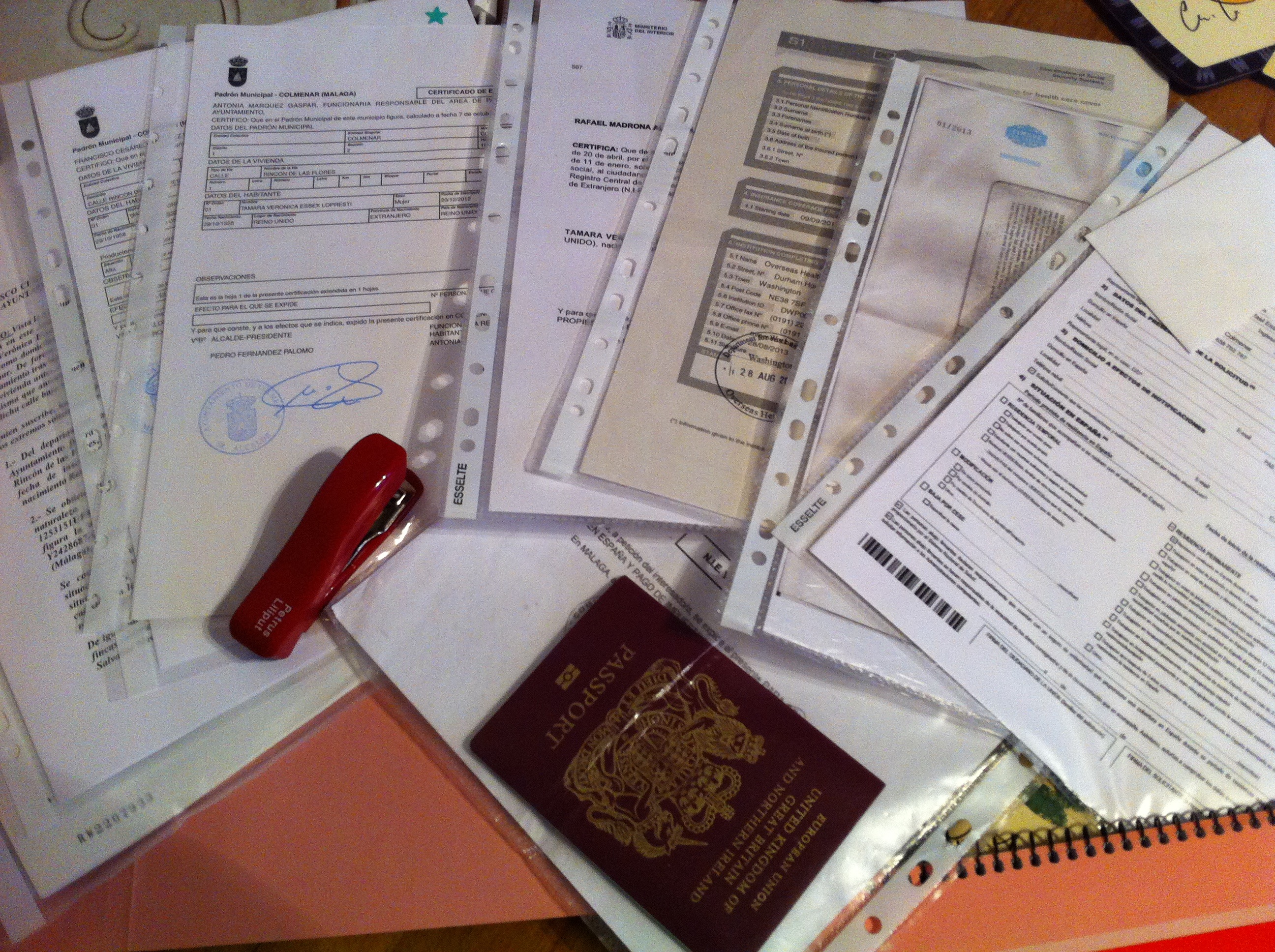 Plus a copy Plus a copy- 4 passport photos
- Modelo EX-18 - the application to sign the Registro de Ciudadanos del UE
- Plus three copies
- Passport
- Plus a certified copy
- Certificate from the bank showing my average balance over the last three months (to prove I have adequate resources)
- Plus a copy
- The certificate from the town hall in Colmenar explaining that the house formerly known as number 21 is now officially known as number 1
- Plus a copy
- And (just in case), a copy of the Nota Simple (a short, official version of the escritura for my house). Officially not necessary, but some expat websites have recommended taking it.
Nothing can go wrong.
Except that the Policía Nacional at Málaga's Oficina de Extranjeros has recently been randomly requiring that the form S1 from the UK government must be officially stamped (apostillado) by a notary in the UK. Other people have reported that they have been asked for an official notarised translation. None of this is mentioned on either the Spanish government's website, nor on the UK government's web pages for people moving to Spain. It shouldn’t be necessary, as the form S1 is a standardised form across the EU, exactly for the purposes of being accepted anywhere without being stamped or translated. But arguing with the people who have the power to grant or refuse resident status would be a fruitless and counter-productive exercise.
Technically, as a resident of Colmenar, I should go to the Policía Nacional at Málaga, where I would risk being turned away or having to go through a long and expensive process of finding a UK notary to stamp my S1. Hmm. If only there was some way of circumventing this .....
Enchufe to the rescue once again! A coffee with a good friend, a phone call is made, and lo and behold I am sent to Torre del Mar comisaría where such stamps and translations are not required.
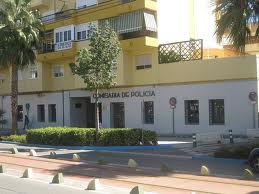 Armed with my bundle of papers (and of course my secret weapon) I turn up at the comisaría. On entry I am given ticket number 40. The machine is showing that number 19 is currently being served. I go for coffee over the road at the conveniently-placed cafe (they should have a linked electronic display direct from the police station, as so many people are there awaiting their turn!). After coffee and the machine is still only on 25. Armed with my bundle of papers (and of course my secret weapon) I turn up at the comisaría. On entry I am given ticket number 40. The machine is showing that number 19 is currently being served. I go for coffee over the road at the conveniently-placed cafe (they should have a linked electronic display direct from the police station, as so many people are there awaiting their turn!). After coffee and the machine is still only on 25.
A young Polish couple are there to register their child, so that he can then be registered with the health service. He is adorable and completely charms the waiting queue and the woman in charge of the extranjeros section. Their application takes longer than it should as it is interspersed with a great deal of gurgling, cuddling, and general diversion. A Spanish man is there to register his French girlfriend. Her Spanish is fluent, her nationality only given away by the use of the French "rrrr" at the back of the throat, rather than the rolled Spanish "rrrr". I chat with a Columbian woman - like most South Americans her Spanish is clear and easier to understand at speed. We exchange phone numbers and agree to meet for a coffee and an intercambio, as she wants to improve her English.
Slowly the numbers click over.
Frustratingly, when it reaches 39, a man returns with some photocopies he'd had to go off for, and he is slotted in. While he is finishing his business, a woman returns from the bank with her receipt, and SHE is slotted in. Even more annoyingly, while she is being served, a woman wanders in, looks at the displayed number and tuts. She had number 27 but went to the cafe and missed her turn. So she is slotted in before me too.
The cafe over the road does a roaring trade for people waiting for their turn at the comisaría. Jaime knows what the different nationalities like for breakfast. It is mostly English people so he does a great line in bacon rolls. The Polish people like something savoury, he says, and those from African countries prefer something sweet. He is patient as customers struggle with their new language, and he repeats everything clearly to help people correct their pronunciation. Unknowingly, Jaime is a small cog in the process all of us immigrants go through to become resident in our new country.
Finally it is my turn. Having brought so many papers, of course I needed hardly any of them. Rosa took my EX-18 application form (and just one of my copies), looked at my NIE, checked my passport and kept the copy I'd brought, took the copy but NOT the original of my S1 health cover document, and took the certificate from the bank showing my average balance over the last three months.
I didn't need the passport photos (as the residents' card doesn't have one), and didn't need the Padrón, the Padrón Historico, the certificate from the town hall about the change of number if my house, nor the escritura / Nota Simple. But of course ...... had I not had them, the story may have been different.
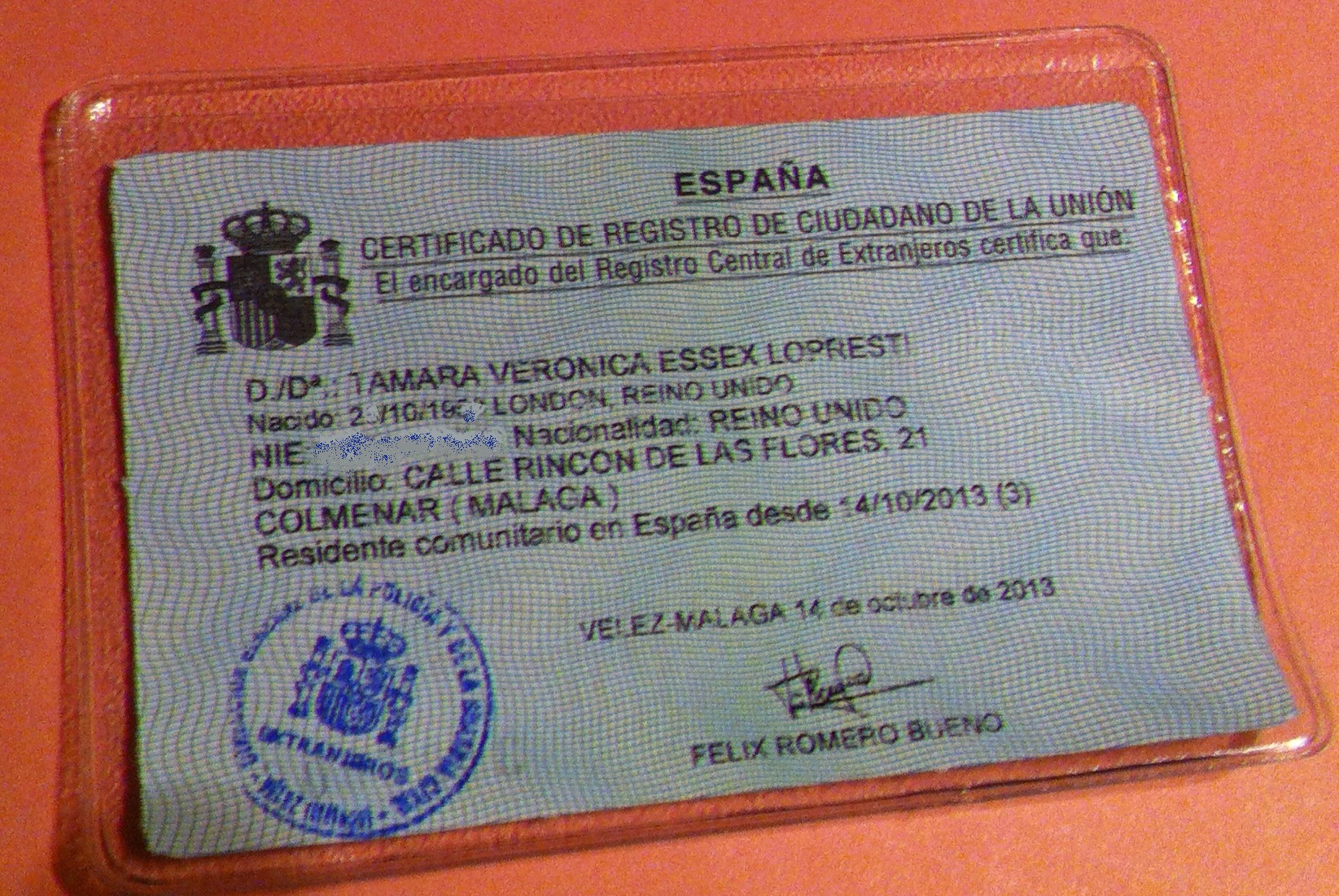 After everything was approved, I was sent across the road to hand over €10.40 at the bank. Returning with the stamped receipt, I was slotted in (presumably to the annoyance of the people with the next few numbers!) and my little green card was issued to me. I am disproportionately proud of it. Soy extranjera, pero soy residente oficial. Estoy contenta. After everything was approved, I was sent across the road to hand over €10.40 at the bank. Returning with the stamped receipt, I was slotted in (presumably to the annoyance of the people with the next few numbers!) and my little green card was issued to me. I am disproportionately proud of it. Soy extranjera, pero soy residente oficial. Estoy contenta.
At home I shut the door firmly behind me and breathed a sigh of relief. The secret weapon hadn't been needed. I went through to the study, slipped the stapler (*) out of my pocket and back into the desk drawer.
© Tamara Essex 2013
* EXPLAINING THE STAPLER
I'm sure that every immigrant in Spain has seen and enjoyed the legendary YouTube video about bureaucracy and funcionarios in a Spanish office. It is brilliant, funny, and at least in part, pretty accurate. It was made for an international film festival where it won an award some years ago, since when it "went viral" and became a standard part of the induction for newbies in Spain. Then, it seems that "the authorities" took exception to its portrayal of Spanish civil servants, and earlier this year it was removed from YouTube and marked as being "Not permitted in the country you are in" (ie Spain). Fortunately someone had made a copy, and it was put up again under a different title. A month later that link too was disabled and marked "Not permitted in the country you are in". Two days later it re-appeared, again with a different URL.
So for those who have still not seen it, here is the (current) link http://www.youtube.com/watch?v=HGhomDQenLg No doubt shortly this will also be removed. Someone up there is putting a lot of effort into suppressing this innocent little satire. When the day comes that this link doesn't work, search YouTube using the search terms "funcionarios" and "leyendo" and look for the screen-shot of a young woman with long hair looking determined, or a man at a desk looking defensive. Merece la pena - it's worth it. Sadly the very final image is clipped slightly short, but the film-makers' satire using wild west imagery stands (and hopefully will continue to stand) as an iconic summation of the universal experience of dealing with bureaucrats in Spain. And I can never use my stapler again without going for a quick draw .....
EDIT - Well, within 12 hours of this blog post going up, the link was removed! Fortunately I can now publish the original link via the producers' website, rather than a YouTube version, so this should stay! I also recommend this link as the final shot is there in full, whereas it is clipped in most YouTube versions. http://www.notodofilmfest.com/ediciones/ix/index.php?corto=29817#/Home/Ficha/29817/
 0
Like
Published at 9:41 AM Comments (5)
0
Like
Published at 9:41 AM Comments (5)
76 - On The Red Carpet
Thursday, October 10, 2013
 I’m not really a red-carpet sort of person. But when a friend has a screening at the Marbella International Film Festival …. well, you just have to go along to support him, don’t you? And when it’s a beautifully-evocative film about food and traditional rural skills in a small Spanish village, nothing would have kept me away. I’m not really a red-carpet sort of person. But when a friend has a screening at the Marbella International Film Festival …. well, you just have to go along to support him, don’t you? And when it’s a beautifully-evocative film about food and traditional rural skills in a small Spanish village, nothing would have kept me away.
We headed off early to Puerto Banus for a brunch meet-up with Zev, his wife Albertina and two other local writers. Grand hotels and chi-chi brunch menus are not my natural habitat but it set the tone for a rather splendid day experiencing how the other half lives.
 After brunch, taxis whisked us to the even more splendid Palacio de Congreso in Marbella where there really WAS a red carpet! We had to be our own paparazzi, sadly, as we were inexplicably not deemed worthy of “papping”. After brunch, taxis whisked us to the even more splendid Palacio de Congreso in Marbella where there really WAS a red carpet! We had to be our own paparazzi, sadly, as we were inexplicably not deemed worthy of “papping”.
Zev Robinson is a Canadian-British filmmaker and artist living in Spain. His most recent documentary is “Arribes: Everything Else is Noise”, about the relationship between food, agriculture and sustainability in an isolated region of north-west Spain – a snippet can be seen here http://vimeo.com/49137785 which is guaranteed to make you want to find a screening to see the rest.
The wine-producer from Arribes had brought along a range of his wines for us to taste which was an appropriate introduction to the main event, the screening of the film.
For just under an hour we were transported hundreds of kilometres north, and what felt like hundreds of years back in time – though the traditional farming methods and cooking processes depicted in the documentary are still in use today. The stunning cinematography, the beautiful natural light, the faces full of character, and the scenery around Arribes are skillfully woven together by Zev to illustrate this isolated village where more than 80% of their food is locally-produced. The people tell their own stories – the baker, the cheese-maker, the farmers, the musician, the dancers, the olive-pickers, the wine-makers. A sense of community and co-operation under-pins it all.
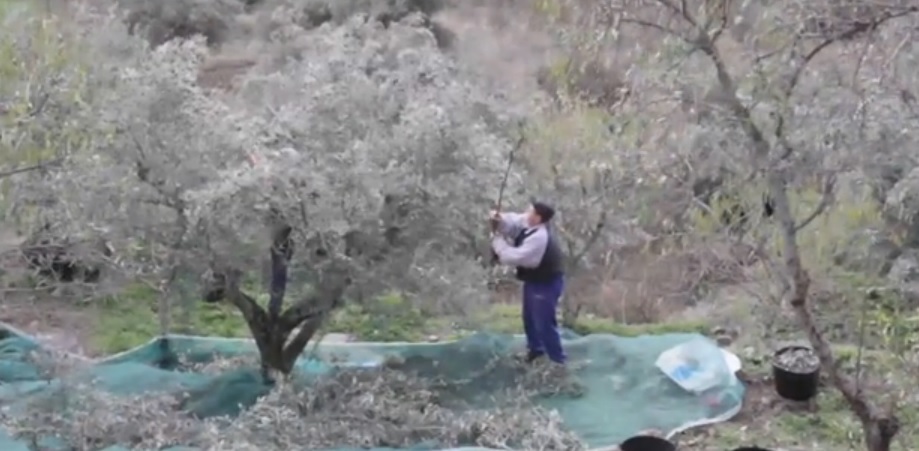 It is the Spain of our fantasies – unchanging, rural, simple, and happy. It is tempting to beat a tourist path to their door, yet the stronger instinct is to continue to keep it secret, keep it unchanging. It is the Spain of our fantasies – unchanging, rural, simple, and happy. It is tempting to beat a tourist path to their door, yet the stronger instinct is to continue to keep it secret, keep it unchanging.
We emerged in silence, holding the beautiful images for as long as possible. But outside the building there was Marbella, a world of competitiveness, of real-estate, of glitz, and of pretence. A different Spain.
An hour later we turned off the autovía north of Málaga, and a short while later passed the sign welcoming us home to the Axarquía region. The red carpet was far behind us. Nice to visit for a few hours, but the glitz fades rapidly.
The reality of daily life in Arribes, however, continues, just as it does in my village. Not quite so traditional or remote, perhaps, but the unchanging pleasure of a shared meal of locally-produced food, each simple morsel savoured and valued for the year’s toil behind it, remains. And everything else is just noise.
© Tamara Essex 2013
THIS WEEK’S LANGUAGE POINT:
Friends are now beginning to “bully” me about the finer points of Spanish pronunciation. This week on two separate occasions I was given a sentence to practice. Evil, both of them!
El perro de San Roque no tiene rabo, porque Juan Ramón Rodriguez se lo ha cortado. The dog of San Roque doesn’t have a tail, because Juan Ramón Rodriguez cut it off.
La lluvia en Sevilla es una pura maravilla. The rain in Seville is a pure wonder.
Clearly, the actual translation is irrelevant – it’s the rolling of the rrrrr, the depth of the lllll, and the softening of the v to a b that they are testing. I must remember to keep the car window shut when I’m sitting at the traffic-lights by the Rosaleda stadium practicing at the top of my voice!
 0
Like
Published at 2:32 PM Comments (3)
0
Like
Published at 2:32 PM Comments (3)
75 - Enchufe Part 2 - Picking Up a Certificate
Thursday, October 3, 2013
I'd left my friends in the square. "I'll just pop in and pick up this wretched certificate" I told them. "Wait for me, I won't be long." Famous last words.
Last week I wrote about my discovery that "enchufe" had enabled me to get the Ayuntamiento to provide me with the certificate I needed from them, explaining that they had changed my house number from number 21 to number 1. 74 - Plugged In. Paco, the town hall's Tesorero (Chief Exec), had clapped me on the back, assured me that my certificate would be done and I could come in on Monday. So I rolled up on Monday, stupidly thinking I could pick up the certificate. Sigh. When will I learn that things just don't go so smoothly?
 Paco's door opened and I was ushered into the inner sanctum of the Tesorero. Piles of paperwork, as would be expected. One of these must be mine, surely? Paco waved my "solicitud" to show that he'd read and understood what I needed. I trotted out a few niceties, explaining that I was delighted to be part of his village, but now needed to take the next step and formally sign the Registro de Ciudadanes de UE, pay my taxes here in Spain, and become a full contributing resident of this great country. I think it sounded less sycophantic in Spanish. Paco's door opened and I was ushered into the inner sanctum of the Tesorero. Piles of paperwork, as would be expected. One of these must be mine, surely? Paco waved my "solicitud" to show that he'd read and understood what I needed. I trotted out a few niceties, explaining that I was delighted to be part of his village, but now needed to take the next step and formally sign the Registro de Ciudadanes de UE, pay my taxes here in Spain, and become a full contributing resident of this great country. I think it sounded less sycophantic in Spanish.
He sat me in front of his desk, and went and got Pedro from the main office. Pedro was plonked in front of the computer. Ah yes, I thought - there'll be a standard certificate for house number changes, and they will just insert my two address versions into that. No.
Paco began to stride up and down, fingers pressed together in a statesmanlike fashion. He started to dictate. The first three paragraphs set out that this was a certificate, and that it was being issued by the Ayuntamiento, the Secretary (Paco) having seen all relevant original documents. Then followed a couple of paragraphs setting out the law under which the Ayuntamiento was allowed to issue such certificates, and that the Secretary was deemed to be the appropriate person so to do.
Then we got to the business end of things. The next sentence explained that the house formerly known as number 21 was now known as number 1 and that it was the same property listed in the land registry as number 21. Well actually, at that point Paco dictated number 23 so I leapt in to correct him. "Just testing to see if you were listening" he said. "And to see if you were understanding it all". I smiled and waited for the final lines to wrap up the certificate. Another sentence followed. As far as I could tell, it said exactly the same. The house previously known as 21 is now 1. OK that must be it now. A third repetition followed. Then Pedro was instructed to indent. "Punto Uno" dictated Paco. Point one seemed to be exactly the same as the three preceding sentences. Though it did mention escritura, so it sounded important. "Punto Dos" was similar, but mentioned the land registry. And various other things, through several paragraphs. "Punto Tres" seemed remarkably similar – longer than Punto Uno but shorter than Punto Dos.
Paco asked if I was happy with how it looked. I tentatively mentioned my surprise at the complexity of the document. What surprised me more, though, was his response. This was no overly-bureaucratic or unnecessarily lengthy document - amazingly, he had grasped exactly the ramifications of the house number change for all sorts of different aspects of Spanish administration, and has specifically worded a paragraph to address each of them. "We don't want to risk one single organisation rejecting this document because it isn't worded just the way they need it" he said. I was quietly impressed.
Detail completed, Pedro was instructed to insert my name and NIE number into various parts. "Essex" is a particularly difficult word for Spanish people to pronounce or spell. Paco was interested in my second surname, Lopresti, and that it means "the priest" in Italian. I threw in my mafia connections just for good luck. But he largely gave up on my surnames and just dictated "Tamara Veronica mmmm ...... " and waved his hand to indicate that Pedro should insert the more complicated bits.
They reached the signing off. This involved several more paragraphs, mostly reiterating the competence of the signing officer, a further confirmation that he had seen the relevant documents enabling him to confirm that number 1 was, indeed, the house formerly known as number 21, and some more mentions of the law under which this certificate could be issued. It wasn't really a certificate - not as we'd know it. More of a complex legal statement. He's a clever man.
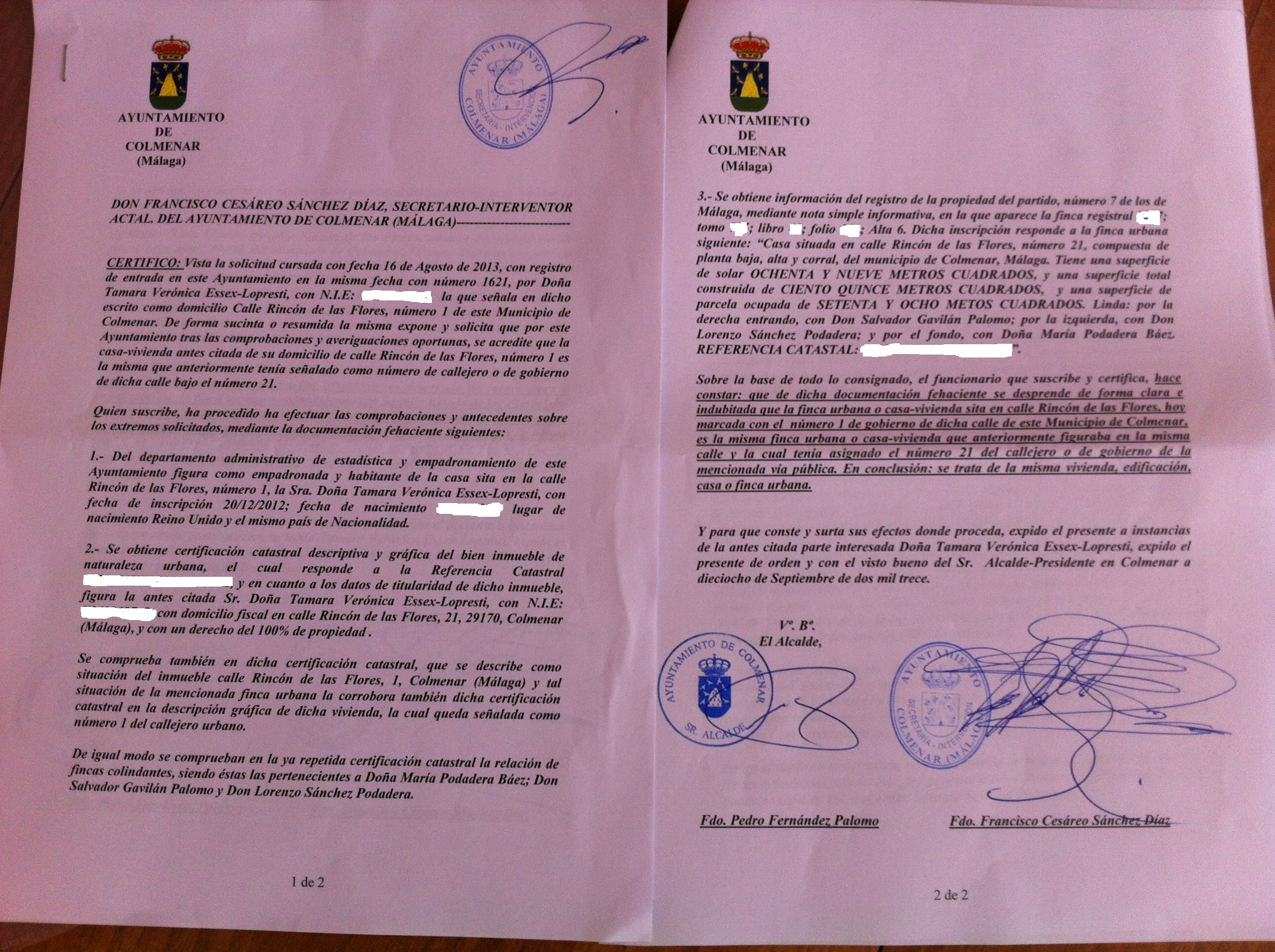 Pedro printed off four copies. Paco signed each one with his grand flourish of a signature. The pen ran out of ink after he'd done two. "You use too much ink" I said. Pedro looked a bit shocked at my cheek. Paco disappeared to bring the mayor down to sign them all as well. The mayor remembered me from a couple of brief meetings, and congratulated me on taking steps towards becoming a resident. I told him I hoped my taxes would help a bit with the crisis. He looked hopeful for a moment and asked if I expected to pay a lot of tax. "Not really" I said. His face dropped. Pedro printed off four copies. Paco signed each one with his grand flourish of a signature. The pen ran out of ink after he'd done two. "You use too much ink" I said. Pedro looked a bit shocked at my cheek. Paco disappeared to bring the mayor down to sign them all as well. The mayor remembered me from a couple of brief meetings, and congratulated me on taking steps towards becoming a resident. I told him I hoped my taxes would help a bit with the crisis. He looked hopeful for a moment and asked if I expected to pay a lot of tax. "Not really" I said. His face dropped.
Finally we went through to the main office where my copies were placed in a thick, expensive envelope and I handed over €1.35. Paco said it was a bargain, kissed me on both cheeks, reminded me to go and see his mother for coffee again, and then turned his attention to more pressing affairs.
© Tamara Essex 2013
THIS WEEK'S LANGUAGE POINT
In English we use the "...ing" ending much more than they do in Spanish. Shame, really, because it's one of those Spanish constructions that it quite easy to remember, once I had twigged that the N in iNg corresponded to the N in hablaNdo and comieNdo etc.
We would say "Did you have difficulty findING a place to live?" whereas in Spanish it is "¿Tuviste dificultad para encontrar un lugar para vivir?" using the infinitive. Or in English "It was a waste of time readING that book" but in Spanish "Fue una perdida de tiempo leer ese libro". Another example - "There's no point havING a car if you never use it" translates as "No tiene sentido tener un coche si no lo usas nunca." Finally - "It's no good askING Tom" becomes "No sirve nada pedirselo a Tom."
So in Spanish we need to remember to use the infinitive much more instead of the ...ing ending. Oh and this is just as hard for Spanish people! Despite speaking English at a pretty high level, my intercambio friend Jose sometimes slips up and would say "It was a waste of time to read that book" or "Did you have difficulties to find a place to live?" When he makes a small error like that, it helps me to understand that if I get the same thing wrong, I will be understood but the person listening will just trip up slightly thinking it didn’t sound right, and might miss the sense of what I’m trying to say.
 1
Like
Published at 2:22 PM Comments (0)
1
Like
Published at 2:22 PM Comments (0)
Spam post or Abuse? Please let us know
|
|